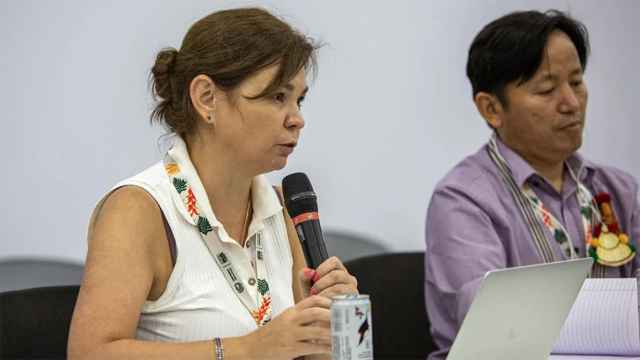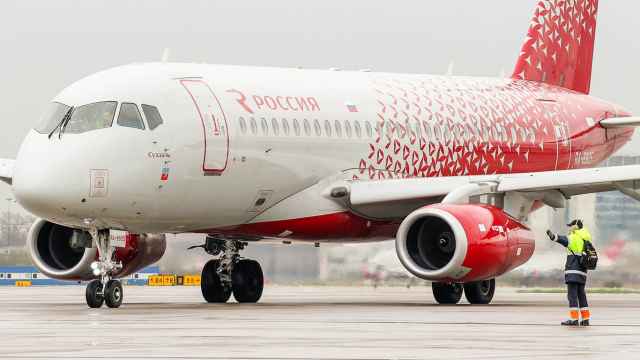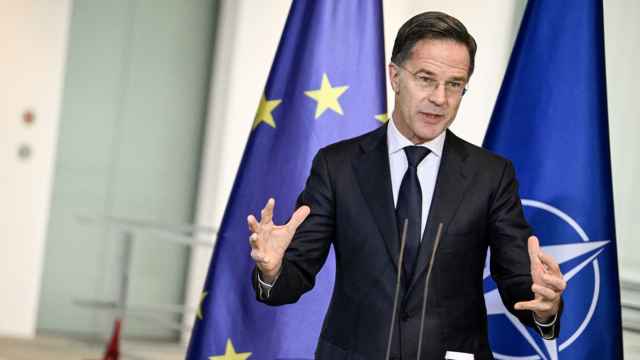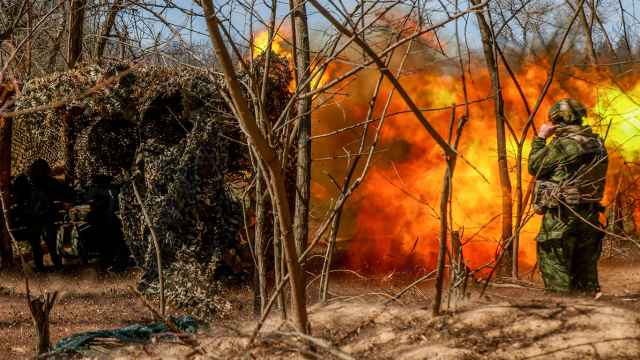General Nikolai Makarov, chief of the General Staff, said Tuesday that the armed forces will fully abandon analog infrastructure by 2012 and spend 300 billion rubles ($10 billion) to create new digital systems.
“Creating the foundation for a new system of direction for our army,” he said, “is one of our fundamental tasks,” Interfax reported.
Makarov made the announcement as part of a whole host of clarifications on Russia's military goals from 2011 to 2020.
Prime Minister Vladimir Putin said Monday that the government has earmarked 20 trillion rubles ($646 billion) to rearm and modernize the country's military over the next nine years.
Deputy Prime Minister Sergei Ivanov said 79 percent of the Defense Ministry's budget will be spent on the purchase of high-tech weapons. The rest will be spent on modernizing and repairing existing equipment.
A new air-defense system will be a cornerstone of the long-term plan. Makarov said the foundation for a unified air defense system will be laid in 2012 and “functioning at full capacity from 2020.”
At present, different branches of the country's military are responsible for different aspects of missile defense.
“We want to unite all the disparate elements into a single, integrated system under a unified command,” Makarov said, “so that the state can exist under an ‘umbrella’ protecting it from strikes by intercontinental ballistic missiles, intermediate-range missiles, cruise missiles, space, naval and ground missiles … even at a low altitude, at any time and in any circumstance.”
“This is a comparatively lengthy and demanding process requiring significant financial investment,” he added.
First Deputy Defense Minister, Vladimir Popovkin, said Monday that Russia's current priorities for military procurement were “strategic missile forces, missile defense, high-precision weapons, the management system for the country's strategic reserve and electronic warfare,” Bloomberg reported.
In his speech to a meeting on Monday addressing Russia's military spending through 2020, Putin highlighted the technological innovations that these priority areas will require. The prime minister said 1,300 new types of equipment will have to be purchased.
Seventeen percent of these will require “opening new or expanding old production facilities,” Putin said.
Building on a recent trend, some foreign equipment and technology will also be needed for the ambitious rearmament program. Makarov confirmed that a final decision on the purchase of French Mistral-class helicopter carriers, estimated to cost 6 million euros ($8 million) each, had been made and the tender's winner would be announced by year-end.
Defense Minister Anatoly Serdyukov announced Dec. 3 that Russia would buy 10 multifunctional armored personnel carriers from Italian company Iveco. Russia bought 12 unmanned drones from Israel in 2009 for $100 million.
Makarov also said the Russian military would come to rely more and more on contract soldiers. Changes would not happen “overnight” he said, but “we are aiming toward a fully contractual army.”
Putin said Monday that of the 20 trillion dollar budget for the next nine years, 4.7 trillion rubles will go to the navy.
This will not include the construction of any aircraft carriers, Ivanov said, but does cover a new generation of nuclear submarines.
Putin oversaw the first dockside trials on Monday for the new Borei-class submarine, Alexander Nevsky, at Severodvinsk on the White Sea.
A Message from The Moscow Times:
Dear readers,
We are facing unprecedented challenges. Russia's Prosecutor General's Office has designated The Moscow Times as an "undesirable" organization, criminalizing our work and putting our staff at risk of prosecution. This follows our earlier unjust labeling as a "foreign agent."
These actions are direct attempts to silence independent journalism in Russia. The authorities claim our work "discredits the decisions of the Russian leadership." We see things differently: we strive to provide accurate, unbiased reporting on Russia.
We, the journalists of The Moscow Times, refuse to be silenced. But to continue our work, we need your help.
Your support, no matter how small, makes a world of difference. If you can, please support us monthly starting from just $2. It's quick to set up, and every contribution makes a significant impact.
By supporting The Moscow Times, you're defending open, independent journalism in the face of repression. Thank you for standing with us.
Remind me later.







